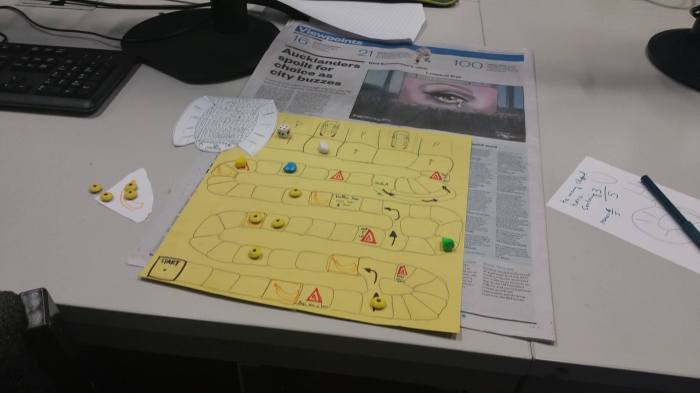Undertale is simultaneously a blend of every game you’ve played in your life, and something you have never quite experienced before. Drawing inspiration from JRPGS, rhythm games, click and point and action-adventure games of years past, one man game designer Toby Fox has created something truly unique.
The game follows an androgynous child, named by the player, whose goal is to escape the underground fantasy world they have accidentally found themselves in. Along the way you meet various anthropomorphic characters who will either help or hinder your progress, depending on the choices you make. The gameplay is similar to turn-based JRPGS, in which you randomly encounter enemies on the map and take turns selecting to fight, defend, use items or try and escape. However the big twist is in the way you fight; rather than selecting attack and seeing a fitting animation, you are given an interface where you must move around to avoid the enemies’ attacks in a very similar fashion to rhythm games. You are also given options to talk to or act upon your enemy to find their weakness, and take advantage of that whatever way you see fit.
Undertale shines with its narrative, and does things that can only ever be achieved in a video game. Your role of controlling the player character is constantly being challenged. Case in point, characters will berate you for making typically ‘wrong’ game choices (like ignoring given directions), and the game will acknowledge when you try and ‘outsmart’ typical game mechanics (making meta comments if you quit and reload the game to retry certain sections). One of my favourite thing any media can do is surprise me, and this game is full to the brim of surprises and easter eggs. There are three endings you can reach that require a certain way of playing; neutral, in which you kill and show mercy to a balanced number of enemies, merciful in which you spare everyone and genocide, in which no one and nothing escapes your wrath. Every playthrough has its own interactions and bosses, meaning that 3 runs are essential in exploring everything this game has to offer.
A huge value of this game is in themes of familial love and the consequences of its absence. Your player character is lost and almost killed before being rescued by the motherly Toriel, who immediately tries to stop you from exploring the world further due to its dangers. Other characters will be either at odds with their own family, such as the bickering skeletons Sans and Papyrus, or alone in the world, acting out due to their own longing for affection like the antagonistic Undyne. This all comes to a climax with the final boss, whose only goal is to find closure with his missing son, no matter the consequences to his kingdom or friends. A sense of deprive and loneliness is found in all these characters when you first meet them, and in the way you interact with them you create bonds and shed a little light into their world. They in turn will help you out in various stages of the game, offering advice or helping you defeat bosses. Or, if you choose, they will grow to hate you and try and impend on your progress at every turn. Again, this type of story is one that can only be found in a video game, with elements that have to exist together to make the whole thing work.
Undertale was a real joy to play, with Toby Fox’s love and passion for creating this kind of experience shining through in every element of the game. I can’t recommend it enough.
